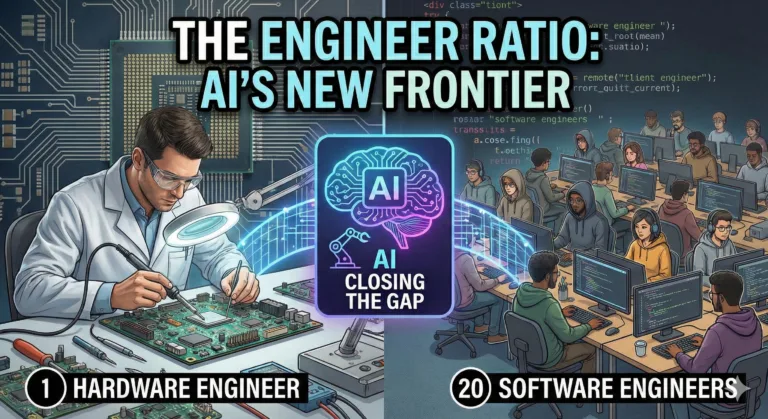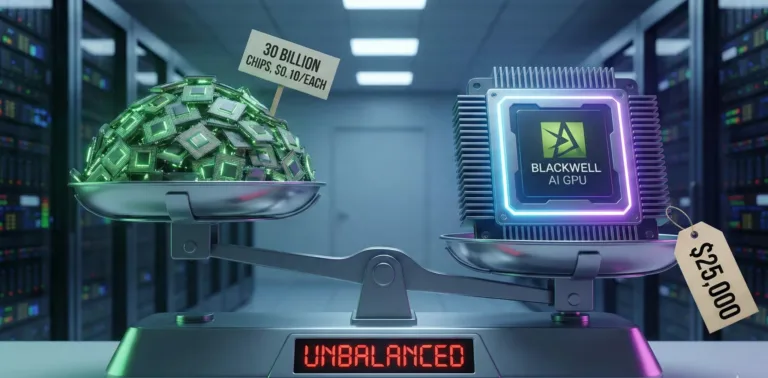In recent months, the dialogue between the United States and India has intensified, particularly in the high-tech sector. One of the most promising areas of discussion has been the semiconductor industry. Both nations recognise the strategic importance of semiconductors in driving economic growth, ensuring national security, and fostering technological innovation. In fact, we had covered a detailed article on how semiconductors are driving big geopolitics. This has led to a series of high-level talks aimed at strengthening their collaboration in this critical field.
Also Read : How semiconductors are driving big geopolitics ?
The global demand for semiconductors is surging, and both the US and India are trying to position themselves in such a manner that they can play a pivotal role in the industry. The momentum gained from these discussions is expected to pave the way for substantial advancements and mutual benefits. Let us first try to understand what the current state of US-India chip cooperation is.
Current State of US-India Chip Cooperation
The cooperation between the US and India in the semiconductor sector has evolved quite a lot in recent years under the Biden and Modi governments .Initially, the collaborations used to be quite sporadic , but the relationship has matured into a more structured partnership in recent years. Both countries have engaged in various joint ventures and research initiatives, laying the groundwork for a more robust and dynamic semiconductor ecosystem.
Also Read :Biden-Harris Administration Partners with Rocket Lab to Enhance US Semiconductor Production
Historically, the US has been a leader in semiconductor design and manufacturing, while India has emerged as a global hub for software development and IT services. This complementary expertise forms the basis of their cooperation, leveraging India’s software prowess and the US’s hardware capabilities.
Recent Developments
Several recent developments have highlighted the growing momentum in US-India chip cooperation. Key among these has been the signing of new bilateral agreements focused on semiconductor research and development. Both governments have announced significant investments aimed at boosting domestic manufacturing capabilities and fostering innovation.
1) US-India Initiative on Critical and Emerging Technology (iCET): The US-India Initiative on Critical and Emerging Technology (iCET) was announced in 2023. The main motive behind this initiative is to deepen technology cooperation in areas such as semiconductors, AI, and quantum computing. The iCET framework emphasises collaboration in semiconductor supply chains, joint research, and development projects, and talent exchange programmes across the US and India. Ultimately, the goal is to strengthen the technology ecosystems of both countries and drive innovation forward.
2) Establishment of a Joint Task Force: In a recent meeting, top officials from both countries agreed to form a joint task force to address supply chain challenges. This task force will focus on identifying and mitigating bottlenecks, enhancing supply chain resilience, and ensuring a steady supply of critical components to both markets .
3) Investments in Manufacturing Capabilities: Both countries have committed to substantial investments to enhance their semiconductor manufacturing infrastructure. The US, through the CHIPS Act, has allocated significant funding to boost domestic semiconductor production. Similarly, India has launched the Production Linked Incentive (PLI) scheme to attract global semiconductor manufacturers and support local startups in the sector .
4) Public-Private Partnerships: The governments are encouraging public-private partnerships to foster innovation and drive the growth of the semiconductor industry. For example, companies like Intel and Qualcomm have expressed interest in expanding their operations in India, leveraging the country’s skilled workforce and cost advantages .
5) Research and Development Collaborations: Academic and research institutions from both countries are collaborating on cutting-edge semiconductor research. Institutions like the Indian Institute of Technology (IIT) and prominent US universities are working together on projects that aim to develop next-generation semiconductor technologies .
Join our WhatsApp community.
Benefits for Both Countries
The benefits of enhanced chip cooperation between the US and India are manifold. Economically, this partnership is expected to create high-value jobs and stimulate growth in both countries. Technologically, it will accelerate advancements in fields such as AI, 5G, and quantum computing.
Strategically, the cooperation strengthens national security by reducing dependence on external sources for critical technologies. This is particularly important in the context of global geopolitical dynamics, where control over semiconductor supply chains has become a focal point of economic and strategic competition.
Global Impact of US-India Chip Cooperation
The US-India semiconductor collaboration is set to have a profound impact on the global industry. By pooling their resources and expertise, the two countries can drive innovation and set new standards for the semiconductor sector. This collaboration could also lead to a realignment of global supply chains, making them more resilient and diversified.
Also Read : 2 nm chip race is heating up : Everything you need to know.
Challenges and Future Prospects
Despite the promising outlook, several challenges remain. These include regulatory hurdles, differences in business practices, and the need for substantial infrastructure investments. However, the commitment shown by both governments and the private sector suggests that these obstacles can be overcome.
Looking ahead, the future of US-India chip cooperation appears bright. With ongoing efforts to deepen their partnership, both nations are poised to achieve significant milestones in semiconductor innovation and production.
Discover more from WireUnwired Research
Subscribe to get the latest posts sent to your email.





[…] Also Read : US-India Chip Cooperation Gains Momentum […]